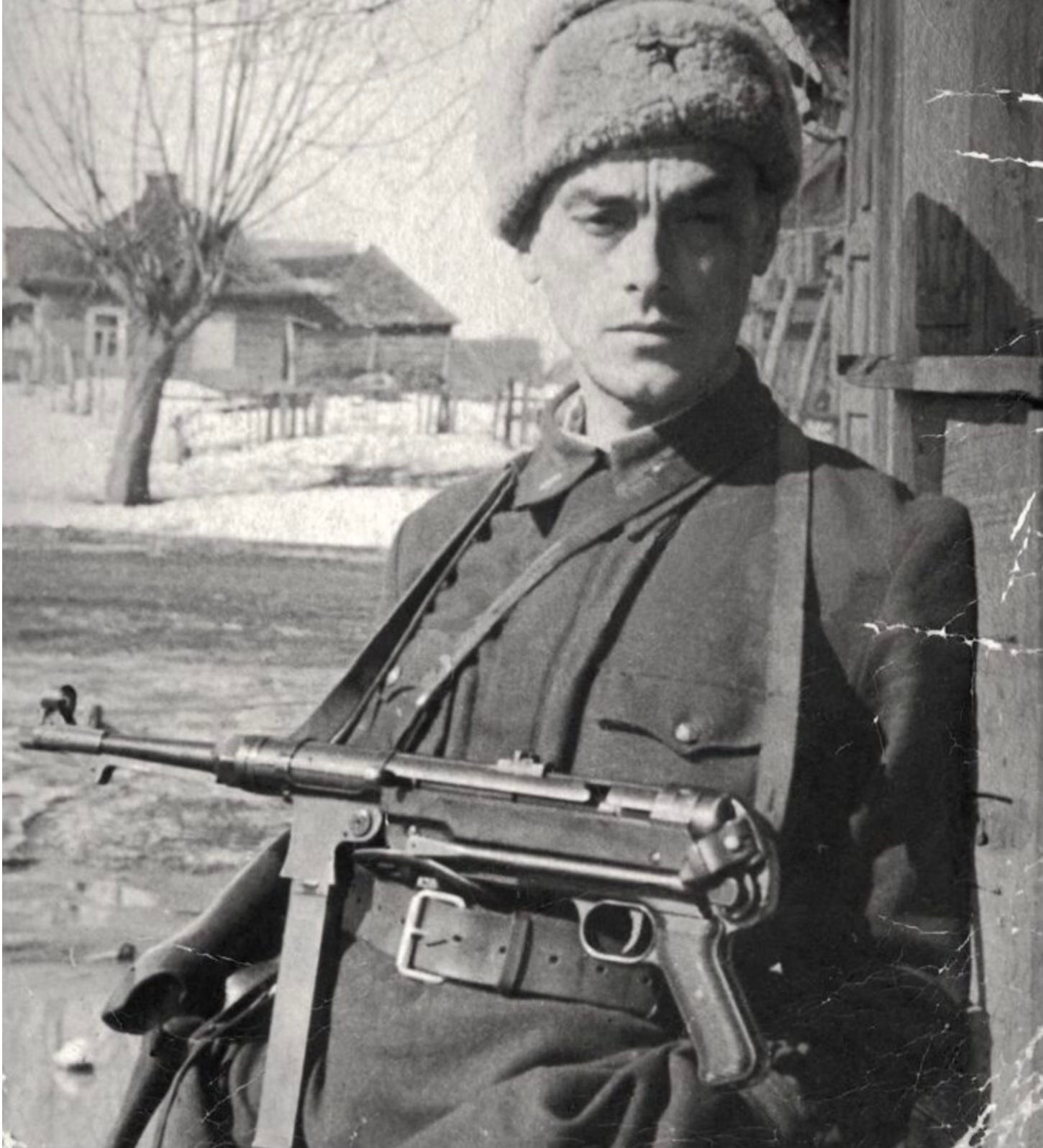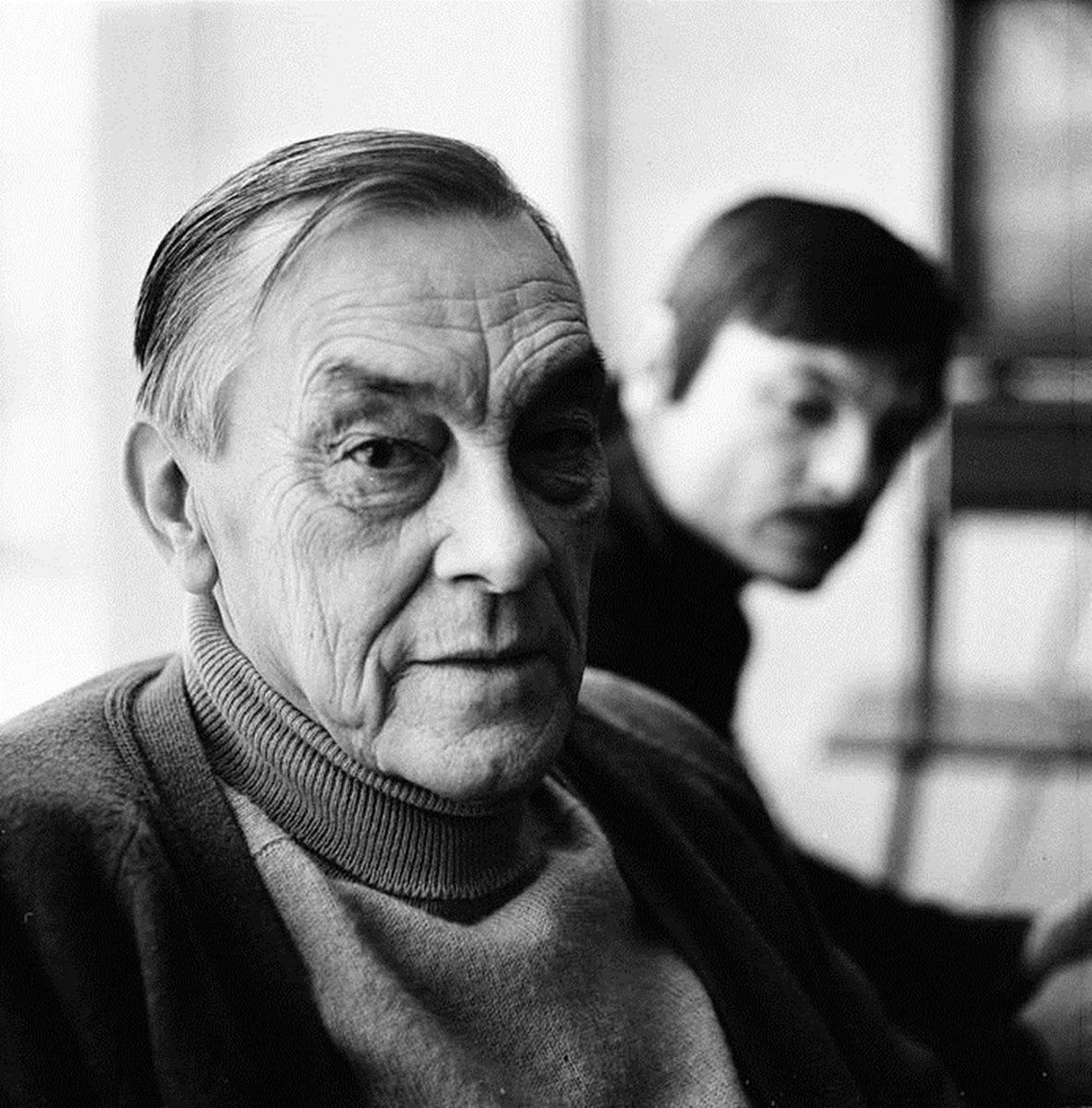Notes on Failed Love
The father of the great Soviet director Andrei Tarkovsky, Arseny, wrote lyrical verse of deep beauty. It is little known in the West.
Twenty years ago, I wrote a volume of poetry, inspired in part by the confusion of finding myself entirely and unexpectedly besotted. Neither the poetry nor the relationship that provoked it withstood the very mildest tests of time. But the unpublished book also includes translations of verses by Russian poets whose stature is unshaken by the passage of the years.
Among them were pieces by Arseny Tarkovsky, the father of the cinema director Andrei. who remains far better known, within and beyond Russia’s borders, for films that include Andrei Rublev, Solaris and The Mirror.
Arseny Tarkovsky as a reporter for War Alarm (Boyevaya Trevoga)
Arseny Tarkovsky was born in 1907 in Yelisavetgrad, named after the Empress Elizabeth. In Soviet times, it was rebranded as Zinovievsk, after a Bolshevik revolutionary who was born there. When he met his comeuppance in the purges of the 30s, the town turned into Kirovo, in honour of a different Bolshevik. Stalin felt he was becoming too popular and therefore had Sergei Kirov murdered. But he was content for him to be lionised in death. Now, the town is known as Kropyvnytskyi, and it is located in present-day Ukraine.
As a young man, Tarkovsky moved to Moscow to study literature, and worked as a translator of classic authors from the Caucasus, including the poetry of Sayat Nova and Vazha Pshavela, and the writings of the Polish dramatist, poet and political activist, Adam Mickiewicz.
When the Nazis invaded, Tarkovsky volunteered his services as a reporter for the ‘War Alarm’ newspaper. He was injured by German shellfire in 1943. A leg wound festered and developed gangrene; Tarkovsky was to slowly suffer six progressive amputations.
The experience of warfare and disability must have brought themselves to bear on the development of his poetry, and its flashes of mystical sensibility tempered by an unsentimental realism.
Some of his most affecting compositions feature in Andrei Tarkovsky’s biographical film, The Mirror. Arseny, by now in his late sixties, reads the poems himself. One of them - ‘First Dates’ - speaks of a love sundered by fate, and captured in the eyes of the actress Margarita Terekhova, who plays Andrei’s mother - and Arseny’s wife.
‘First Dates’ as read by Arseny Tarkovsky and featured by his son, Andrei Tarkovsky, in The Mirror. Margarita Terekhova was for some time Andrei Tarkovsky’s muse.
What follows is an attempt to translate a poem that means a great deal to me (and to many others, no doubt). I have pasted the text of the Russian original below it.
First dates
In every moment of the time we shared,
we rejoiced, as in the Feast of Holy Epiphany.
Two souls, quite alone on this earth.
Bolder, lighter than the wing of a bird,
like a rush of blood to the head, you dashed
down the stair, crossed the step, made a path
through the rain-damp lilac, and into your lands
on the other side of the mirror’s glass.When night fell, I was gifted grace.
The altar gates were flung apart,
and in the darkness together our nakedness
shone and gave worship, without haste.
Stirring, I said ‘Let you be blessed!’
And speaking the words, I knew this blessing
audacious. You were still lost in sleep,
the lilac reached out for you from the table
to touch your eyelids with its universe of blue,
and your eyelids, now touched with that blue,
were still, and your hand was warm.
Rivers rolling in glass, and smoke
rising in the hills, and the shine of the seas:
you held in your palm a crystal globe
as you dreamed on, at ease, on your throne,
and - Heavenly Father! - now you were mine.
You came out of sleep, and transfigured
the everyday language of men, and speech
filled the throat, resonant in power,
and just one small word - ‘you’ - came to reveal
a new meaning: my Czar.Everything on earth was transfigured,
even plain things - the ewer, the jug -
the water, stratified and solid,
stood calmly between us, like a soldier on watch.We were led on further, neither knew where,
and cities constructed of wonders gave way
as we passed, a mirage in the air,
and wild mint spread itself at our feet,
as the flight of birds traced our map of the land,
and the fish swam up from the rivers to meet us,
and heaven fell open before us, that day.While the future - it followed, hard on our tracks,
like a madman, a razor clutched in his hand.
Первые свидания
Свиданий наших каждое мгновенье
Мы праздновали, как богоявленье,
Одни на целом свете. Ты была
Смелей и легче птичьего крыла,
По лестнице, как головокруженье,
Через ступень сбегала и вела
Сквозь влажную сирень в свои владенья
С той стороны зеркального стекла.
Когда настала ночь, была мне милость
Дарована, алтарные врата
Отворены, и в темноте светилась
И медленно клонилась нагота,
И, просыпаясь: «Будь благословенна!» —
Я говорил и знал, что дерзновенно
Мое благословенье: ты спала,
И тронуть веки синевой вселенной
К тебе сирень тянулась со стола,
И синевою тронутые веки
Спокойны были, и рука тепла.
А в хрустале пульсировали реки,
Дымились горы, брезжили моря,
И ты держала сферу на ладони
Хрустальную, и ты спала на троне,
И — боже правый! — ты была моя.
Ты пробудилась и преобразила
Вседневный человеческий словарь,
И речь по горло полнозвучной силой
Наполнилась, и слово ты раскрыло
Свой новый смысл и означало царь.
На свете все преобразилось, даже
Простые вещи — таз, кувшин, — когда
Стояла между нами, как на страже,
Слоистая и твердая вода.
Нас повело неведомо куда.
Пред нами расступались, как миражи,
Построенные чудом города,
Сама ложилась мята нам под ноги,
И птицам с нами было по дороге,
И рыбы подымались по реке,
И небо развернулось пред глазами…
Когда судьба по следу шла за нами,
Как сумасшедший с бритвою в руке.
1962 г.



Thank you for this post, such a welcome and necessary distraction from the everyday.
The romance and ethereal themes in his poetry seem very Silver Age, even the rhythm, although he wrote outside the period.
The last and mid stanzas feel Gumilev-like in their exotic, hopeful dreaminess and then the dagger in the last two lines. Hauntingly beautiful and devastating.
Beautiful, Chris - then those last two lines! Nov 5 round the corner.